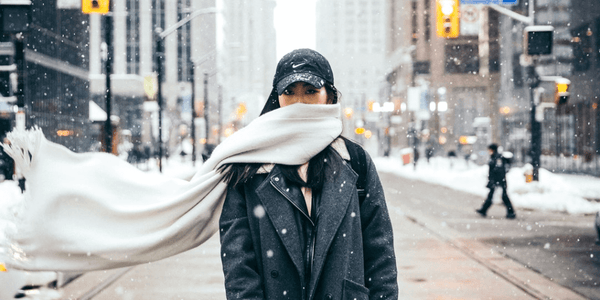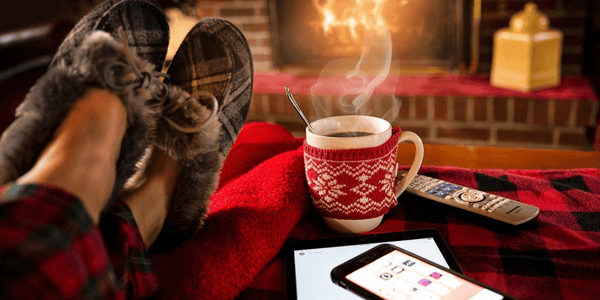Cold weather is common from November through March and cold sores do seem to be linked to the temperatures outdoors. The term, winter cold sore has become common because winter weather is considered a cold sore trigger.

Do cold sores only occur in winter?
No, is the simple answer. Cold sores can develop anytime of the year. However, the weather changes associated with winter increase our vulnerability of developing a cold sore. The common winter cold sore triggers listed below help us understand how cold sores develop more frequently during the colder months of winter.
How can winter cause cold sores?
- Winter Weather. Winter winds can dry out the lips and make them more susceptible to the herpes simplex virus (HSV-1) that causes cold sores.
- Home Air Circulation. During the winter months we heat our homes. Dry, warm air in heated homes can encourage the cold sore virus to spread and break out more often.
- Winter Cold/Flu. Flu shots are available yearly because we accept the fact that colds and flu increase in the winter. When we are sick, our body is busy fighting the cold and we become vulnerable from attacks by other bacteria and viruses.
- Immune System. Winter lowers vitamin D within the body, creating a deficiency that increases autoimmunity and susceptibility to infection which can increase a person's risk of developing a cold sore.
- Holiday Celebration Stress. Planning for holiday celebrations can elevate stress, which is a trigger for HSV-1 outbreaks. The longer a person is feeling stressed, the more likely he or she will develop a cold sore.
- Arthritis. Cold weather can increase arthritis inflammation in the body. This can lead to overproduction of stress hormone cortisol. Cortisol can suppress the immune system and trigger a cold sore attack.
- Indoor Tanning. During the colder months many people visit tanning salons. The exposure to artificial UV rays can irritate issues around the mouth and lead to a cold sore outbreak.
How can I prevent winter cold sores?
- Strengthen Your Immune System. Make sure your diet provides you with plenty of immune boosting vitamins and minerals like vitamin C, zinc and vitamin D. As long as your diet is healthy and varied, with lots of fruit, vegetables, nuts and seeds, you should be getting plenty of vitamin C and zinc, but you may need an additional vitamin D supplement since sunlight can be hard to come across in the winter months.
- Keep Lips Hydrated. Counteract the negative effects of cold weather by using a natural, nourishing lip balm to keep your lips hydrated and protected against the elements.
- Avoid Arginine Rich Food. Arginine is an amino acid that is thought to be involved with the development of cold sores, so foods that are rich in this chemical should be avoided where possible.
- L-Lysine Supplements. L-lysine, or just lysine, is another amino acid that’s thought to affect cold sores – but this time, it’s thought to help prevent them. Taking an L-lysine supplement internally is a good way to offset the arginine found in the healthy foods you’re eating. There is very little evidence that lysine applied topically has any effect on cold sores.
- Relax, Minimize Stress. With the holiday break approaching, stress can become a real issue. Take some time to relax and de-stress. Some options include taking a bath in the evening, reading a book in bed for 10 minutes, or deep breathing on your way home from work.
- Sleep. Similarly, to stress a lack of sleep can compromise your immune system and leave you run down and fatigued, which puts a lot of extra pressure on your body and can contribute to a sudden cold sore outbreak. Your body uses sleep to repair and restore itself, and many important immune functions take place during the night, so getting plenty of sleep is a must-have.
Sources:
https://www.ncbi.nlm.nih.gov/pmc/articles/PMC3166406/
https://www.freep.com/story/life/wellness/2014/12/21/cold-sores-health/20602873/
https://www.avogel.co.uk/health/immune-system/cold-sores/6-ways-to-prevent-a-cold-sore-outbreak-this-winter/


